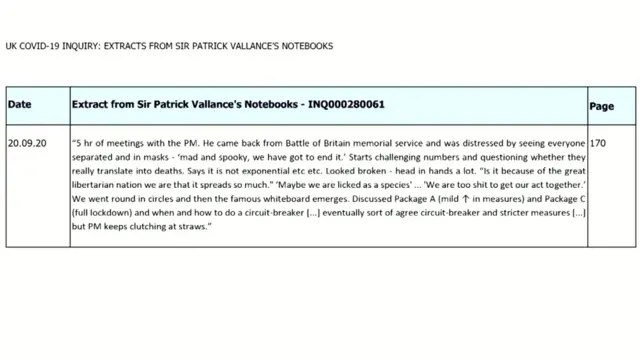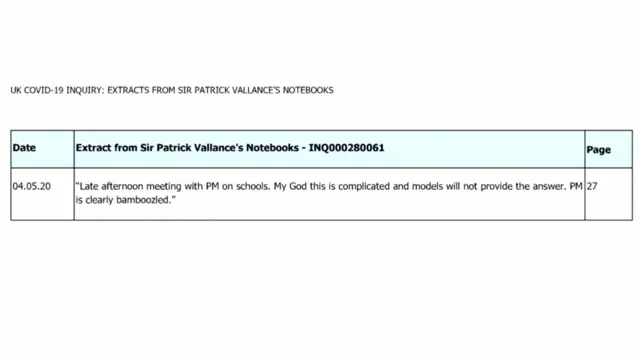Johnson struggled to concentrate after Covid illness - Vallancepublished at 12:35 GMT 20 November 2023
Vallance is asked now about a period when Boris Johnson had Covid during March and April of 2020.
There was a period where he was “really unwell” and struggled to “concentrate on things”, Vallance says.
But after recovering and taking a few weeks to return “there was no obvious change between him and what he was like beforehand”.





